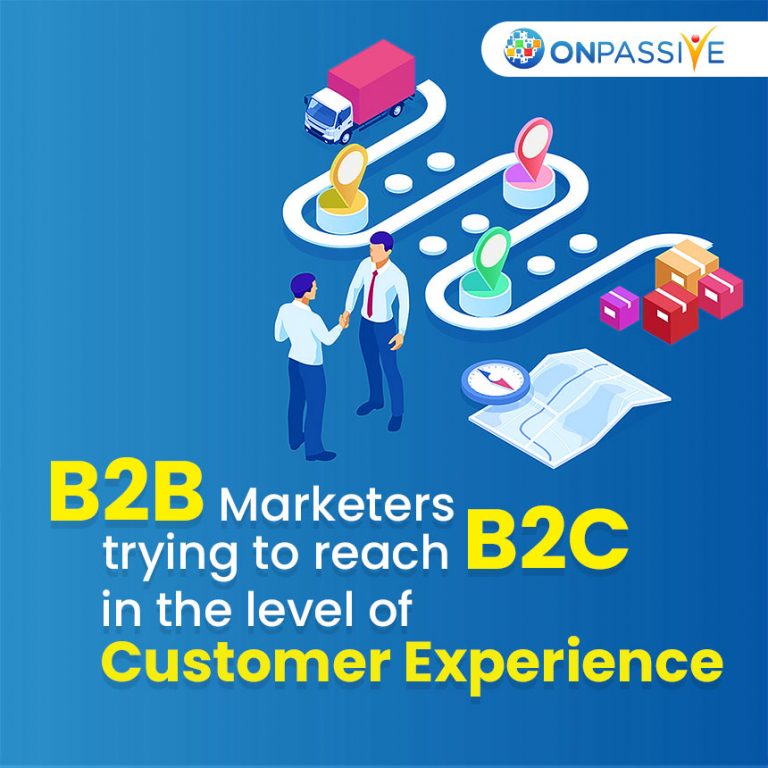
The customer experience (CX) has become an expanded focus for marketers and advertisers across ventures; however, numerous B2B marketers feel like they have to get up to speed and catch-up to their consumer-facing counterparts to convey better experiences.
Almost 90% of B2B marketers think their associations should be as centered on customer experience strategy as their B2C partners, as per reports. And keeping in mind that 38% of B2B marketers accept and believe that they outperform their rivals regarding making and delivering
Customer experiences, almost a quarter demonstrated they feel as they are falling behind.
Here are the Top 5 Difference B2B and B2C Marketing
On the off chance that marketers from both B2B and B2C organizations are so focused on delivering customized, Omni channel experiences, for what reason do so numerous B2B brands battle with CX? As per those overviewed, more than one-third referred and cited the failure to utilize the information and tools they have set up as their greatest customer experience strategy challenge. The failure to recognize customer touchpoints and the absence of understanding into the customer journey were likewise eminent difficulties.
Six Pillar behavior and conduct in a B2B experience:
The Six Pillars conveniently typify the components that add to a drawn-out supportable and productive relationship among organizations and between companies and consumers.
Personalization
Personalization is accomplished by knowing your customer. Being alert to their necessities and needs, regardless of whether they identify with life goals or business objectives, and tailoring experiences to specific conditions. In a B2B relationship, this information may need to traverse several individuals instead of merely the purchaser. It is likewise imperative to ground with regards to the competitive marketplace the client is rivaling and how they perform.
Integrity
Integrity goes before trust, which is the establishment. The trust- development measure is necessary and crucial. It depends on trust-building conduct, reliability, and guaranteeing beneficial and useful results for the two players.
Time and Exertion
With Time and Exertion, the simplicity of working together and the measure of time it takes is a reliable driver of loyalty in both B2C and B2B customer satisfaction factors. Discovering opportunities to diminish cost, Time, and Effort are significant relationship enhancers.
Resolution
Service failure and customer recuperation sway maintenance and support. The capacity to determine issues rapidly and dependably is principal. In the B2B customer satisfaction factors, this is incredibly obvious when it includes enormous customers. In this world, progress reports, courses of events, and updates are more predominant – once more, an element of an alternate degree of intricacy.
But the idea of Goal is pertinent to both. The service recuperation mystery is similarly proof: fix something splendidly, and the client may well reconsider you than they did before it turned out badly in any case. It likewise implies advising the group regarding what has occurred, how it was settled, and how it will be alleviated later on.
Expectations
The idea of B2B buying frequently requires an attempt to sell something or a formal introduction, whereby associations are enticed to put themselves in decent light. We often find that this spills over into an inclination to over-guarantee initially and afterward neglect to deliver. It significantly affects the solidness of a relationship. The precise setting of desires/expectations is a troublesome yet fundamental segment of a fruitful relationship.
Empathy
In the two universes, you should have the option to imagine your customers’ perspective and show them you can see the world from their viewpoint. Comprehend their needs and difficulties, the deterrents that will disrupt everything, their apprehensions, and stresses. Simultaneously, having the option to pass judgment on the emotional temperature and have an emotional insight to respond needs be. Empathy applies to the customer and, all the more significantly, to the client level − it is necessary to see and understand how the choices being viewed and considered impact both.
Why we should mind
For B2B marketers focused on improving client experiences, setting up information governance will assume a critical role in their marketing methodologies for the coming year. Among the extensive rundown of information, most advertisers know about siloed data and managing inadequate customer information.
As indicated by the study, arising technologies, for example, customer data platforms (CDPs) and data management platforms (DMPs), are in effect progressively utilized by both B2B and B2C marketers to deal with the firehose of information they are producing. Eventually, B2B brands needn’t bother with more information; they have to figure out the information they now have, the study concludes.



chan
3 years ago